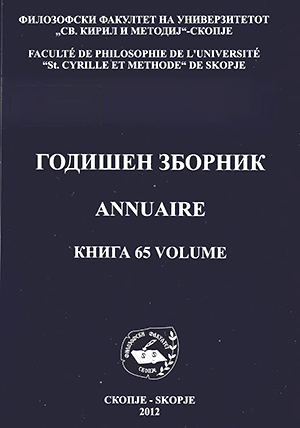INCLUSION OF GENDER ISSUES IN THE NATIONAL SECURITY POLICIES
Abstract
Security is a common imperative for all organized societies, in all stages of their historic development. In modern societies, security is a sphere of interest to all categories and subjects, and it is a core societal need, which envisages the protection of citizens and states from all kinds of jeopardy. Since security can be observed from several aspects, its meaning cannot be dwarfed into one universal definition. However, it cannot be contested that irrespective of their sex, status, nationality or any other affiliation, every member of the society has an inherent need for security. That is why security policies must be comprehensive and take into account the various security needs of all social groups. By reducing discrimination, i.e. by establishing anti-dis crimination rules in the institutions of the security sector, we could build trust, boost legitimacy, and provide safety and justice. Within this give framework, it is crucial that we take into consideration the different security needs of men and women, including internal security threats, such as gender violence as the most obvious manifestation of the need for a different approach in providing safety andjustice. The inclusion of gender issues has a positive impact on the structure and staff of military forces, intelligence agencies, police, and other institutions of the security sector. Moreover, it is an indicator that the security policy is thoroughly well developed, and providing gender-accountable process and result.
Downloads
Copyright (c) 2012 Zorica Saltirovska

This work is licensed under a Creative Commons Attribution 4.0 International License.


